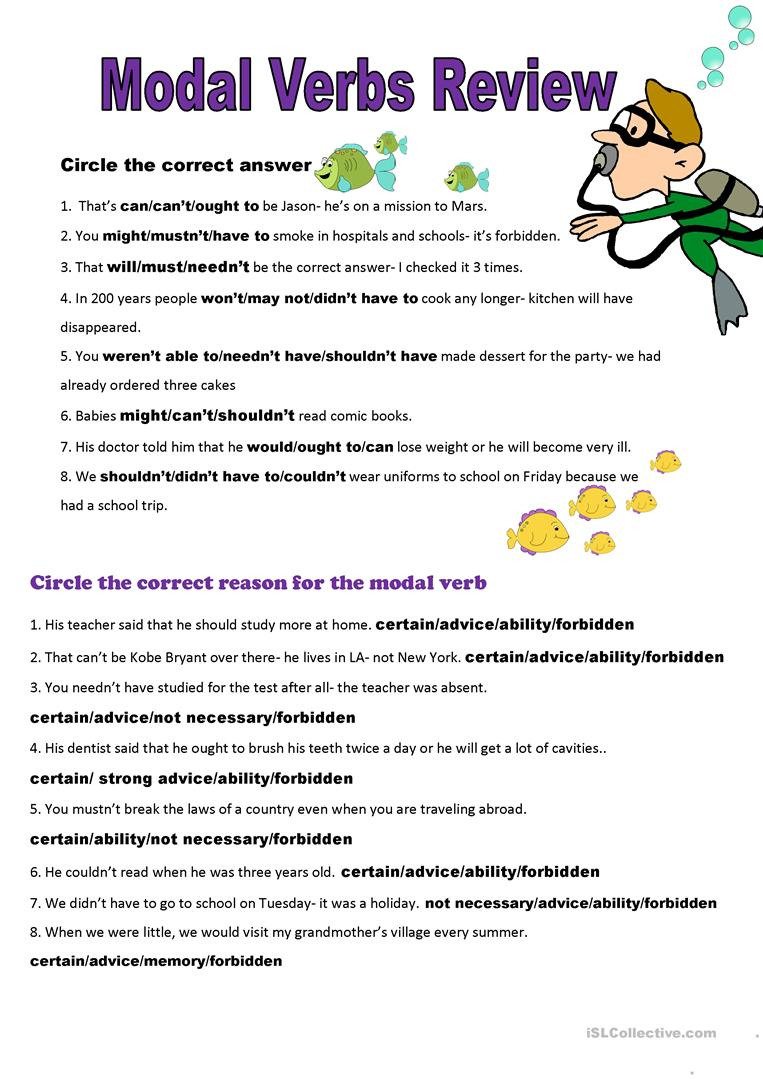

See how we added the s for he, she, and it? Usually, when different people complete an action, the way we spell the verb for that action changes: Verbs are doing words-they denote an action, like reading, walking, or dancing. Rule 1: Modal verbs agree with any subject Let’s review the special characteristics of modal verbs. Modal verbs are unlike other verbs and have different grammar rules. These behave similarly to modal verbs and you can think of them as part of the same list, but they have slightly different grammatical rules. To this list we can add the semi-modals or modal phrases like ought to, have to, need to, and be able to. They help the main verb to convey ideas like certainty, possibility, willingness, obligation, prohibition, necessity, advice, or ability. That’s a fancy way of saying that modals express conditions. Modals are helper verbs, meaning that they help other verbs by expressing modality.

“A verb (such as can, could, shall, should, ought to, will, or would) that is usually used with another verb to express ideas such as possibility, necessity, and permission.” It’s likely that you know them well already, even if you didn’t know they were called “modal verbs.” Before long, you’ll be a master of all things modal.Īccording to Merriam-Webster, the definition of a modal verb is: We’ll also talk about semi-modals (or modal phrases), which function similarly but have different grammar rules. We’ll explain their special rules and provide some examples for you to practice with. Never fear! In this article we’ll cover the nine modal verbs and how to use them. Modal verbs can be tricky because they have many rules and uses. Even though those sound more complicated, don’t worry-they’re just the same as modal verbs. Modal verbs are also known as modals, modal auxiliaries, or modal auxiliary verbs. They are helper verbs that give additional information about the main verb. Modal verbs are special verbs that express necessity or possibility. How Do I Use Modal Verbs in a Sentence?.………….you please help me lift this box ? ( Can/ Could)Ģ0. They ……………to play cricket every day when they were in the college. She said that she ……………prepare dinner herself. He ………….pass this time as he has worked satisfactorily hard. She ………….read a book while watching TV during her school days. Children ……………not go to the roof at night. He ……….be given warm welcome if he wins the tournament. ……………she had worked hard, she would have passed. If you stayed here, you ………….not face the problem. You ………………to go to Delhi tomorrow to attend the meeting.

They ……………not read this book for this topic. …………….her soul rest in peace ! (Would/ May)ħ. She came here so that she …………….( may/might) meet her child. Speak slowly lest you …………….awake the child.


 0 kommentar(er)
0 kommentar(er)
